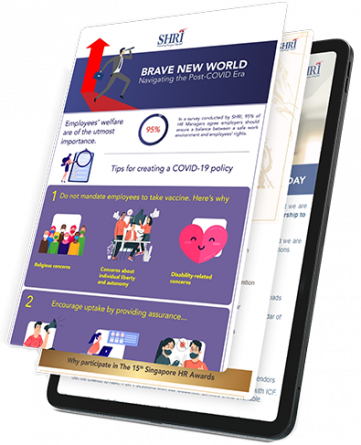DISCOVER THE IMPACT OF HR WITH SHRI
Singapore’s leading professional HR body, dedicated to powering human capital in tandem with nation-building efforts of the nation since Singapore’s independence in 1965.
Be part of a future-ready HR community and advocate HR best practices as a SHRI member. SHRI houses a growing pool of industry professionals, comprising HR practitioners, employers and business leaders from public and private sector organisations.
With our membership, SHRI strives to drive “Professionalism” with the right “Connections” and “Development” opportunities for the HR fraternity.
We help future and current HR Professionals improve their skills and knowledge relevant for the fast changing Business Environment.
We offer various programmes and short courses to help HR professionals better understand their role, address the unique challenges they face, and create a culture that allows them to be more effective.
Our learning environment is designed with a dynamic curriculum taught by industry professionals who help guide students through the course quickly and efficiently.
Continue on your HR journey with SHRI Academy.
We are proud to provide HR consultancy and training services aimed at helping organizations improve productivity and streamline operations .
Whether you need assistance with a hiring decision or need to train your staff on company policy, we can help.
CHECK OUT OUR
Upcoming Events
19th World Human Resource Congress 2024 (WHRC 2024)
14 – 16 May 2024
Sands Expo and Convention Centre at Marina Bay Sands
To Register: https://whrc2024.com/registration/
TESTIMONIALS
What Our Members Have To Say

SUBSCRIBE TO OUR MAILING LIST
As the pioneer of promulgating transformations of the HR brand, SHRI is now onto the next phase of powering human capital to catapult organisations and individuals into developing and grooming people.